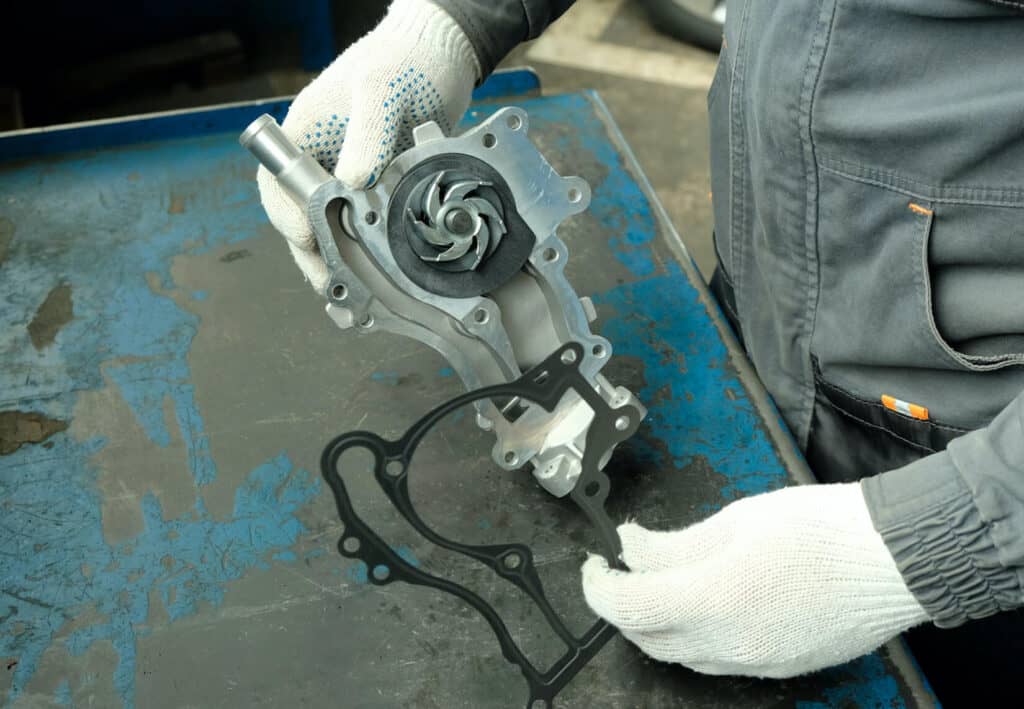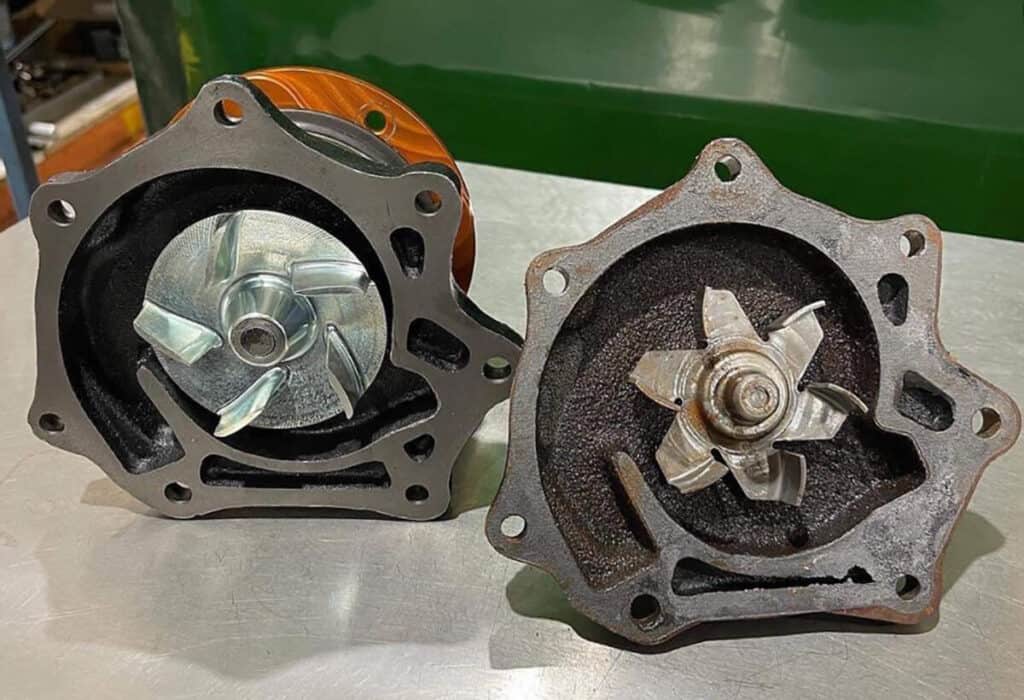Recognizing the Lifeline of Your Engine – The Water Pump
The water pump in your vehicle is akin to the heart in the human body – it’s essential for circulation and overall health. In the case of your car, the water pump circulates coolant through the engine, maintaining an optimal operating temperature. Neglecting its health can lead to significant engine damage. This article outlines eight critical signs that indicate your water pump may need replacing, helping you keep your vehicle in top condition.
The Telltale Temperature: Overheating as a Key Indicator
The water pump plays a crucial role in your vehicle’s cooling system, and one of the most immediate signs that it may be failing is engine overheating. This vital component ensures the circulation of coolant, which keeps the engine temperature in check. When the water pump is compromised, it can no longer regulate the engine’s heat effectively, leading to a rapid and dangerous rise in temperature. Overheating not only affects your vehicle’s performance but can also cause serious, long-term damage to the engine. It is imperative to recognize this sign early and address it promptly. Ignoring an overheating engine can lead to more severe problems, including engine warping and failure, which can be both risky and costly to repair.

Leak Alert: Coolant Puddles and Water Pump Health
A visible sign that your water pump may be failing is the presence of coolant leaks. If you notice puddles of coolant — identifiable by their bright green, orange, or pink color — underneath your vehicle, it’s a clear indication that the water pump may be leaking. These leaks typically originate from the pump’s seal or gasket failing. When the water pump leaks, it leads to a drop in the coolant level, which is crucial for keeping the engine at an optimal temperature. A decreased level of coolant diminishes the system’s efficiency, increasing the risk of engine overheating. Timely identification and repair of these leaks are essential to maintain the health of your vehicle’s cooling system and prevent the escalation of damage, ensuring the engine operates smoothly and reliably.
Noise Matters: Unusual Sounds from the Water Pump
The sounds your vehicle makes can often be the first clue to underlying issues, and this is particularly true for water pump failures. A failing water pump can emit unusual noises, such as whining, groaning, or grinding sounds, which are typically audible from the front of the engine. These noises often suggest that the pump’s bearings or impellers are wearing out. The bearings allow the pump’s pulley to turn smoothly, and their failure can lead to a seized pump, while deteriorating impellers affect the pump’s ability to circulate coolant effectively. Ignoring these sounds can result in a complete water pump failure, leading to a halt in coolant circulation and, consequently, engine overheating. It is crucial to pay attention to these auditory signals and seek a professional inspection as soon as they are detected, to prevent further damage to your vehicle’s engine and cooling system.
Corrosion and Rust: Silent Killers of Water Pumps
Corrosion and rust on a water pump may not cause immediate failures, but they are silent killers that can gradually compromise its effectiveness. These issues typically indicate prolonged exposure to moisture or the use of incorrect coolant, which can lead to the deterioration of the pump’s metal parts. Rust and corrosion weaken the structural integrity of the pump, potentially leading to leaks, reduced efficiency, and, eventually, complete failure. Spotting rust or corrosion during a routine inspection can be a clear warning sign that your water pump needs attention. It is essential to address these problems promptly to prevent them from escalating into major repairs. Regular maintenance checks, including a thorough inspection of the water pump for any signs of rust or corrosion, can help you catch these issues early on and extend the life of your water pump.
Steam Signals: Telltale Vapors from the Engine Bay
Steam or vapor emanating from the engine bay, particularly around the radiator area, is a red flag that should not be ignored. This steam is often a symptom of an overheating engine, a common consequence of a failing water pump. When the pump fails to circulate coolant efficiently, the engine’s temperature rises, causing the coolant to overheat and produce steam. This issue is especially critical because it indicates that the engine is operating at temperatures high enough to cause significant damage. Immediate attention is required in such scenarios, as continuing to drive an overheating vehicle can lead to severe engine damage, including warped cylinders and head gasket failures. If you notice steam coming from your engine, it’s advisable to stop driving and seek professional assistance as soon as possible.
Performance Fluctuations: The Impact on Heating and Cooling Systems
Inconsistencies in your vehicle’s heating and cooling performance can often be traced back to a malfunctioning water pump. If you notice that the cabin temperature is fluctuating or not responding as expected, or if the engine temperature gauge shows unusual readings, these could be signs of a water pump struggling to maintain the engine’s optimal temperature. A failing water pump may not circulate coolant effectively, leading to sporadic temperature control. These fluctuations are more than just a comfort issue; they can signal an impending water pump failure that could have more serious implications for your engine’s health.

Fluid Discoloration: A Subtle Hint at Water Pump Wear
The condition of your vehicle’s coolant can provide valuable insights into the health of your water pump. Discoloration or a change in the texture of the coolant can indicate internal issues, such as rusting or corrosion within the water pump or cooling system. These changes can stem from metal particles or other contaminants in the coolant, which can degrade the pump’s effectiveness and lead to overheating. Regularly checking the coolant’s color and consistency should be a part of your vehicle’s maintenance routine. If you notice any changes, it’s a good practice to have your cooling system, including the water pump, inspected by a professional. Early detection of these subtle signs can help you address potential problems before they escalate into more serious and expensive repairs.
Conclusion: Proactive Steps for Water Pump Longevity
Staying alert to these signs of water pump wear and tear is crucial for maintaining your vehicle’s health and avoiding costly repairs. Regular checks and timely replacements can extend the life of your engine. If you suspect your water pump is failing, don’t hesitate to consult with a professional. For convenient and expert service, consider Uchanics, a mobile mechanic service in Canada, to ensure your vehicle receives the best care right at your doorstep.
